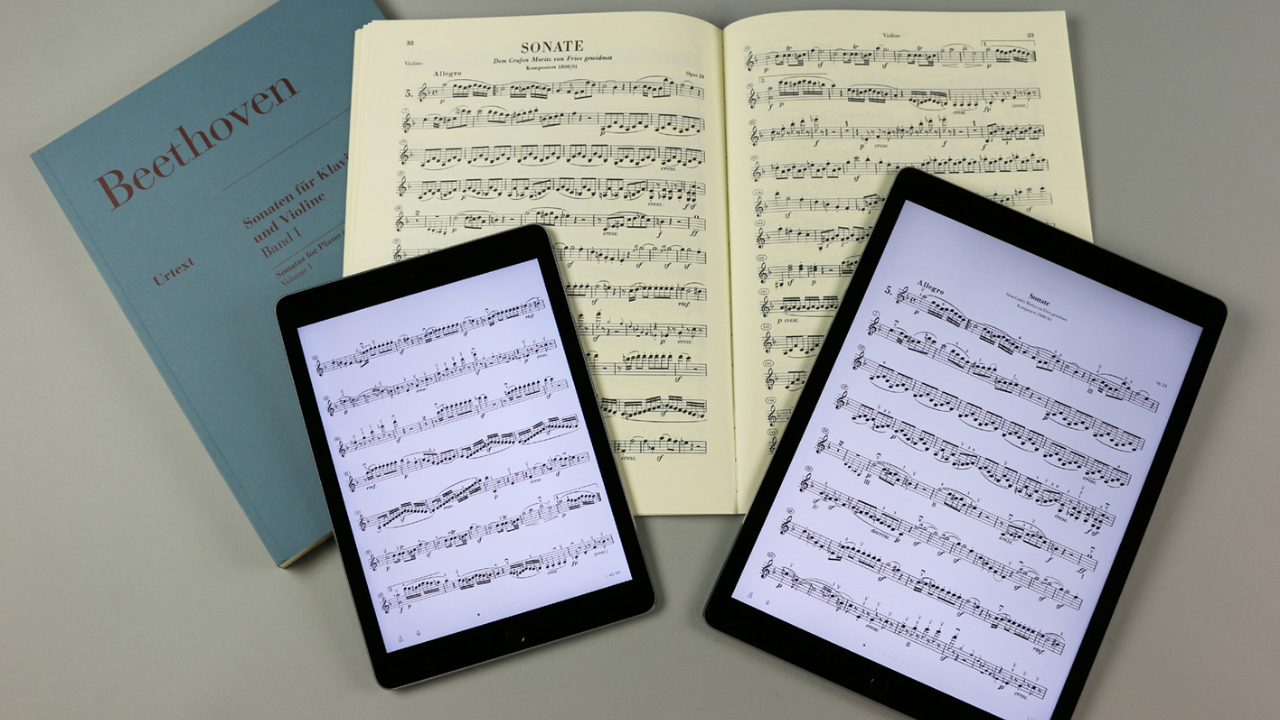
Blue Light, Digital Screens, and Piano Practice: Protecting Your Eyes and Energy
For the past 12-18 months, one of my teenage piano students has come to her lessons with the same greeting: "I’m tired." Week after week, this became our little routine. I’d ask how she was, and she’d reply with those familiar words, usually followed by a chuckle. At times, I’d even preempt her and say, "Tired, right?" before she could get the words out. It was lighthearted but also puzzling—why was she always so drained?
Then, one day, the answer literally lit up in front of me. I asked her to snap a photo of a piano book cover to show her parents in order for them to purchase a copy, and when she pulled out her phone, the screen practically glared with a vivid, cold, white light. It immediately reminded me of my own battles with blue light exposure—from tiredness to sore eyes, headaches, and even vertigo. Could her screen settings be the culprit behind her persistent fatigue?
I suggested she try reducing the blue light on her devices over the upcoming holiday break. When we reconvened three weeks later, something had changed. For the first time, she didn’t greet me with her usual "I’m tired." She looked better rested and admitted she hadn’t made any big lifestyle changes except adjusting her phone settings. Coincidence? I think not.
This experience got me thinking about how blue light impacts all of us—and especially how it ties into piano practice and reading music scores on digital devices. Let’s look at what blue light is, why it matters, and how you can protect yourself while still enjoying the benefits of technology.
What Is Blue Light?
Blue light is a high-energy visible (HEV) light found in sunlight and digital screens—phones, tablets, computers, and even televisions. While natural blue light from the sun helps regulate our sleep-wake cycle and mood, artificial blue light from screens can be problematic, especially when exposure happens late into the evening. Research has shown that blue light can suppress melatonin production, the hormone responsible for helping us fall asleep. This disruption to our natural body clock can lead to difficulty sleeping, eye strain, and, over time, increased fatigue. For some people, prolonged exposure can even cause headaches or exacerbate underlying issues like vertigo.
How Blue Light Affects Pianists and Musicians
For pianists, the connection between blue light and performance might not be immediately obvious. But if you’re like many modern musicians who use tablets to read scores or practice with digital resources, you could be exposing yourself to significant amounts of blue light. Long practice sessions under these conditions may contribute to eye strain, tiredness, and even reduced focus—all of which impact your ability to perform and enjoy the piano.
Television screens and laptops can also emit blue light during relaxation time, further compounding the issue.
Reducing Blue Light Exposure: Simple Steps for Everyone

Here are some practical tips to minimize the impact of blue light on your health and piano practice:
-
Enable Blue Light Filters: Most devices have a built-in option to reduce blue light. Look for settings like "Night Mode" or "Warm Display." Set this to turn on automatically in the evenings.
-
Adjust Brightness and Contrast: Lowering the brightness and tweaking contrast settings can make screens easier on the eyes.
-
Use Specialized Apps or Accessories: Some apps can automatically adjust screen temperature based on the time of day. Alternatively, consider anti-blue light screen protectors or glasses.
-
Follow the 20-20-20 Rule: Every 20 minutes, take a 20-second break and look at something 20 feet away. This reduces eye strain.
-
Rethink Evening Screen Time: Limit screen exposure before bedtime to allow your body to produce melatonin naturally. If you’re using a tablet to read music, switch to printed scores in the evenings.
-
Adjust TV Settings: Many modern TVs have a "warm mode" or "eye comfort mode" to reduce blue light.
A Lesson for All of Us
My student’s story serves as a gentle reminder of how small changes can make a big difference. For her, tweaking one setting on her phone has seemingly alleviated months of fatigue. For me, it’s reinforced the importance of looking out for my students’ well-being beyond the piano bench.
If you’re a musician or piano enthusiast who relies on screens for practice or performance, consider these adjustments. Protecting your eyes and energy will help you stay at your best—both at the keyboard and in your daily life.
Stay Connected and Keep Learning
If you enjoyed this article, don’t forget to check out my piano method book, Hey Presto! Adult Piano Method, designed to help beginners and returning players master the keys with confidence. You can also explore my comprehensive Adult Piano Beginners Course, which offers a wealth of resources to support your musical journey.
For more tips, educational content, and repertoire recommendations, join me on this exciting musical adventure. Together, we can make learning piano rewarding, fun, and stress-free.
www.marcelzidani.co.uk | Check Out Hey Presto! Explore the Course www.adultpianobeginners.com
